Souphanouvong
Prince Souphanouvong (13 July 1909 – 9 January 1995) was, along with his half-brother Prince Souvanna Phouma and Prince Boun Oum of Champasak, one of the "Three Princes" who represented respectively the communist (pro-Vietnam), neutralist and royalist political factions in Laos. He was the figurehead President of Laos from December 1975 to August 1991.
Souphanouvong | |
|---|---|
ສຸພານຸວົງ | |
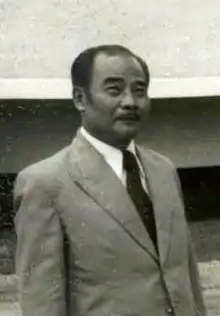 | |
| President of Laos | |
| In office 2 December 1975 – 29 October 1986 | |
| Prime Minister | Kaysone Phomvihane |
| Preceded by | Office Established |
| Succeeded by | Phoumi Vongvichit (Acting) |
| President of the Standing Committee of the Supreme People's Assembly | |
| In office 2 December 1975 – 31 October 1986 | |
| Preceded by | Office Established |
| Succeeded by | Sisomphon Lovansay (acting) |
| Personal details | |
| Born | 13 July 1909 Luang Phrabang, Laos |
| Died | 9 January 1995 (aged 85) Vientiane, Laos |
| Political party | Lao People's Revolutionary Party |
| Spouse(s) | Viengkham Souphanouvong |
Souphanouvong was one of the sons of Prince Bounkhong, the last viceroy of Luang Prabang. Unlike his half-brothers, Souvanna Phouma and Phetsarath Ratanavongsa, whose mothers were of royal birth, his mother was a commoner, Mom Kham Ouane.
Educated in France and Vietnam,[1] he eventually became a supporter of Ho Chi Minh and joined the Indochinese communist movement. In August 1950, Souphanouvong convened the first congress of the Lao Freedom Front (Neo Lao Issara), more generally known as the Pathet Lao, which served as the vehicle for the communist challenge to French rule. He was the chairman of the Neo Lao Issara (since 1956, Neo Lao Hak Xat) and Resistance Government.
He participated in the coalition governments with royalists in the first coalition 1957, second coalition 1962 and third coalition in 1973.[1]
He was elected President of National Assembly from 1958 to 1959 following the success in the 1958 elections.[1]
Nicknamed "The Red Prince", he became part of the Lao People's Revolutionary Party. Upon its successful seizure of power in 1975, he became the first President of the Lao People's Democratic Republic, a position which he held until 1991.[2] After 1986, Phoumi Vongvichit acted in his stead as president, though Souphanouvong still technically remained President. Kaysone Phomvihane succeeded as president in 1991. He was the President of the Supreme People's Assembly from 1975 to 1988.[3]
In 1991, he became an Adviser of Party's Central Committee. Souphanouvong died 86.[4]
Souphanouvong spoke eight languages, including Greek and Latin. He worked in the ports of Le Havre before studying for an engineering degree from the École nationale des ponts et chaussées.
His son, Khamsay Souphanouvong escaped the country and applied for political asylum in New Zealand in 2000.
Honours and Awards
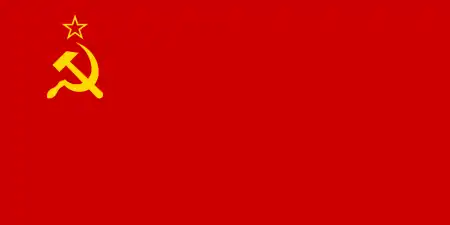 Soviet Union:
Soviet Union:- Order of the October Revolution
- Order of Friendship of Peoples
- Medal "For Strengthening Military Cooperation"
 Bulgaria: Grand Cross of the Order of Stara Planina
Bulgaria: Grand Cross of the Order of Stara Planina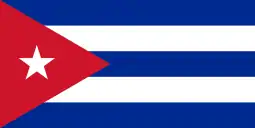 Cuba:
Cuba:- Order of Playa Girón
- Order of José Martí
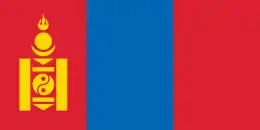 Mongolia: Grand Cross of the Order of Sukhbaatar
Mongolia: Grand Cross of the Order of Sukhbaatar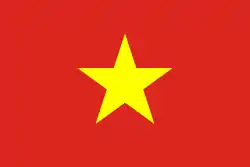 Vietnam: Order of Ho Chi Minh
Vietnam: Order of Ho Chi Minh Czechoslovakia: Order of Klement Gottwald
Czechoslovakia: Order of Klement Gottwald Japan: Grand Cordon of the Order of the Chrysanthemum
Japan: Grand Cordon of the Order of the Chrysanthemum Austria: Grand Star of the Decoration of Honour for Services to the Republic of Austria
Austria: Grand Star of the Decoration of Honour for Services to the Republic of Austria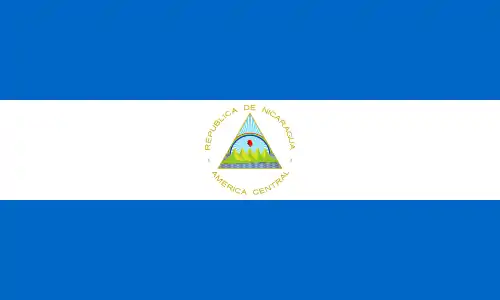 Nicaragua: Grand Cross of the Order of Augusto César Sandino
Nicaragua: Grand Cross of the Order of Augusto César Sandino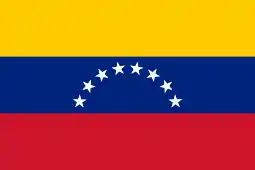 Venezuela: Grand Cordon of the Order of the Liberator
Venezuela: Grand Cordon of the Order of the Liberator Norway: Grand Cross of the Royal Norwegian Order of Saint Olav
Norway: Grand Cross of the Royal Norwegian Order of Saint Olav
References
- Stuart-Fox, Martin. "Historical Dictionary of Laos". epdf.pub. ISBN 978-0-8108-5624-0.
- Souphanouvong, Prince. The Columbia Encyclopedia, 6th ed.. Columbia University Press
- Speakers
- Souphanouvong, "red prince'' of Laos, dies aged 86. Hartford-hwp.com (1995-01-12). Retrieved on 2013-11-17.
External links
| Political offices | ||
|---|---|---|
| Preceded by Sisavang Vatthana as King of Laos |
President of Laos Phoumi Vongvichit acting from 1986 to 1991 1975–1991 |
Succeeded by Kaysone Phomvihane |
| Party political offices | ||
| Preceded by None |
President of the Lao Front for National Construction 1979–1986 |
Succeeded by Phoumi Vongvichit |